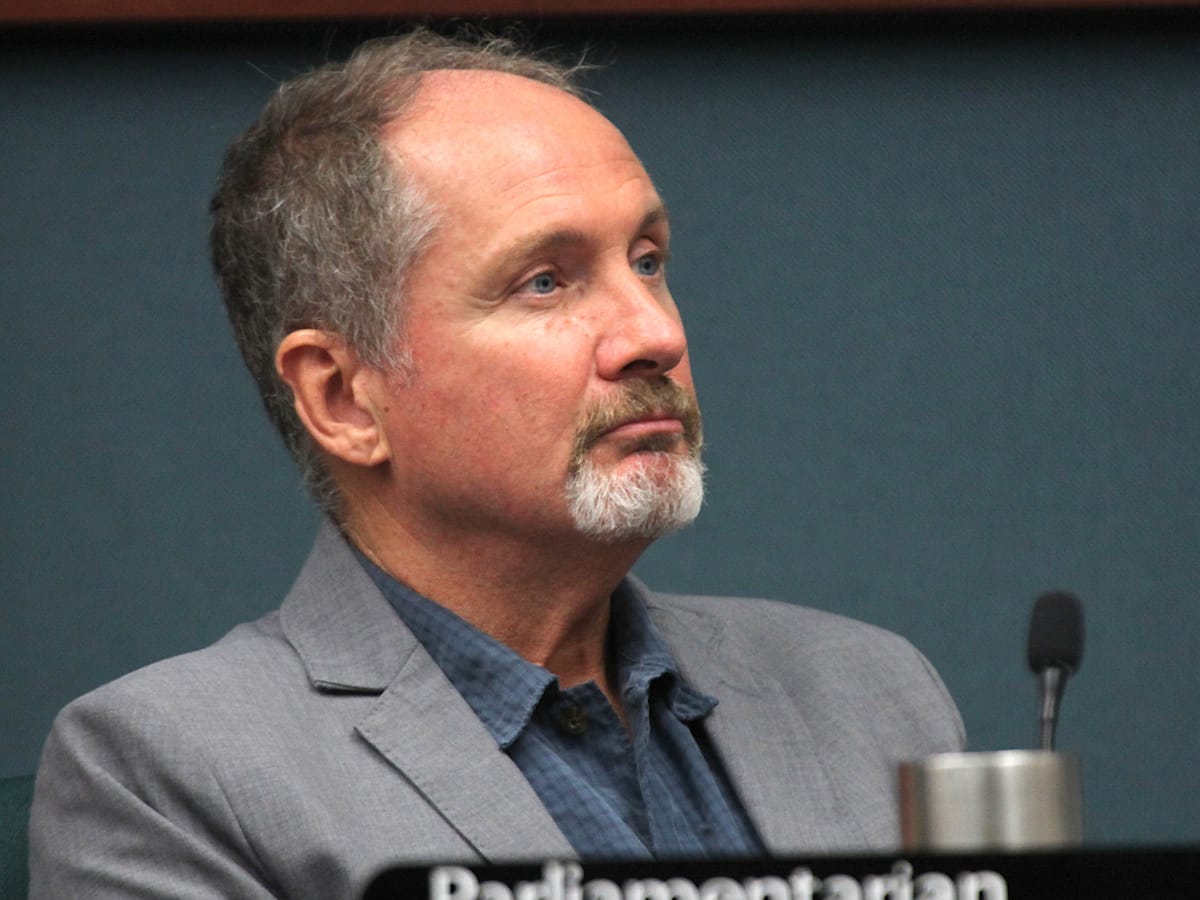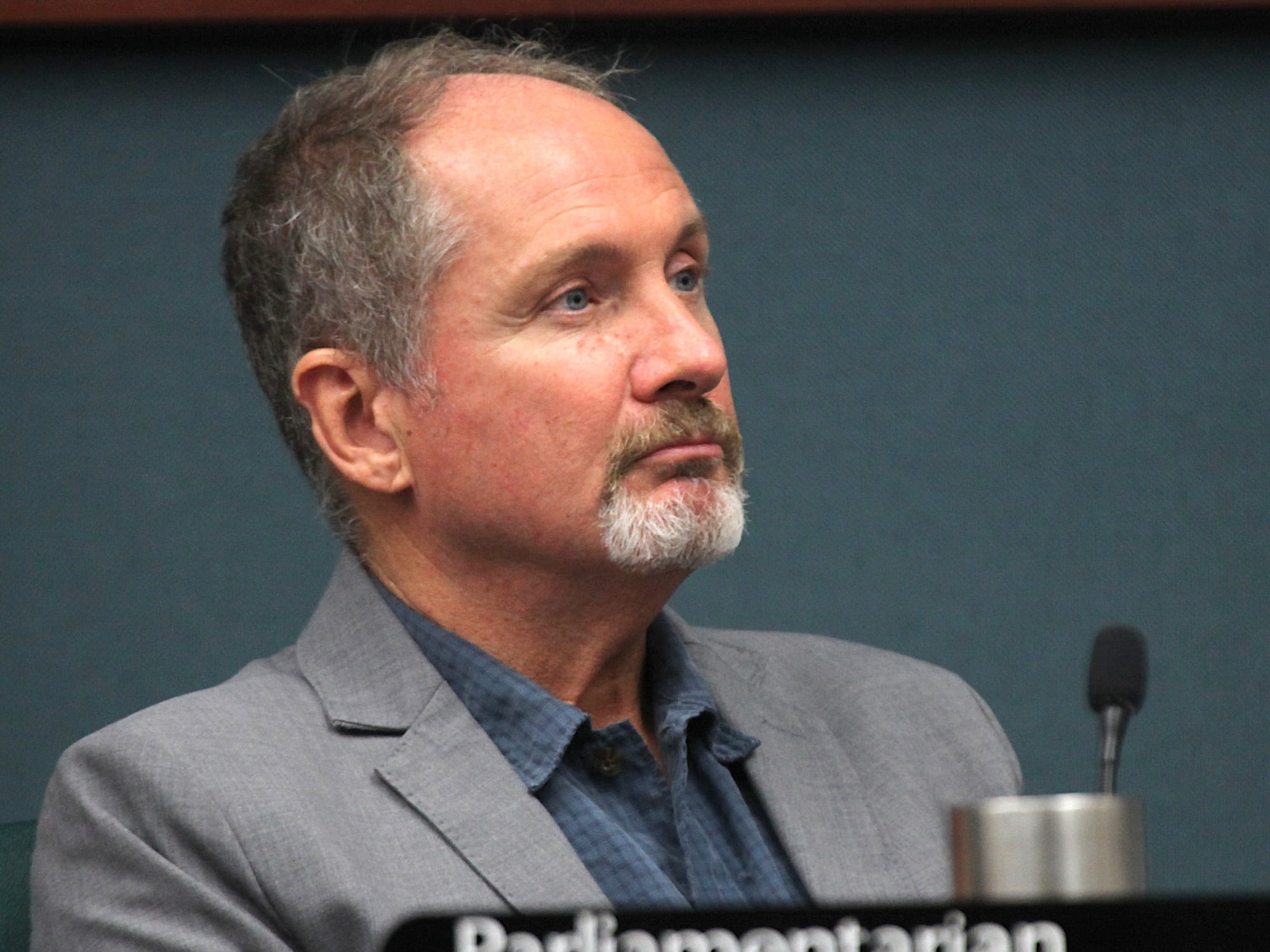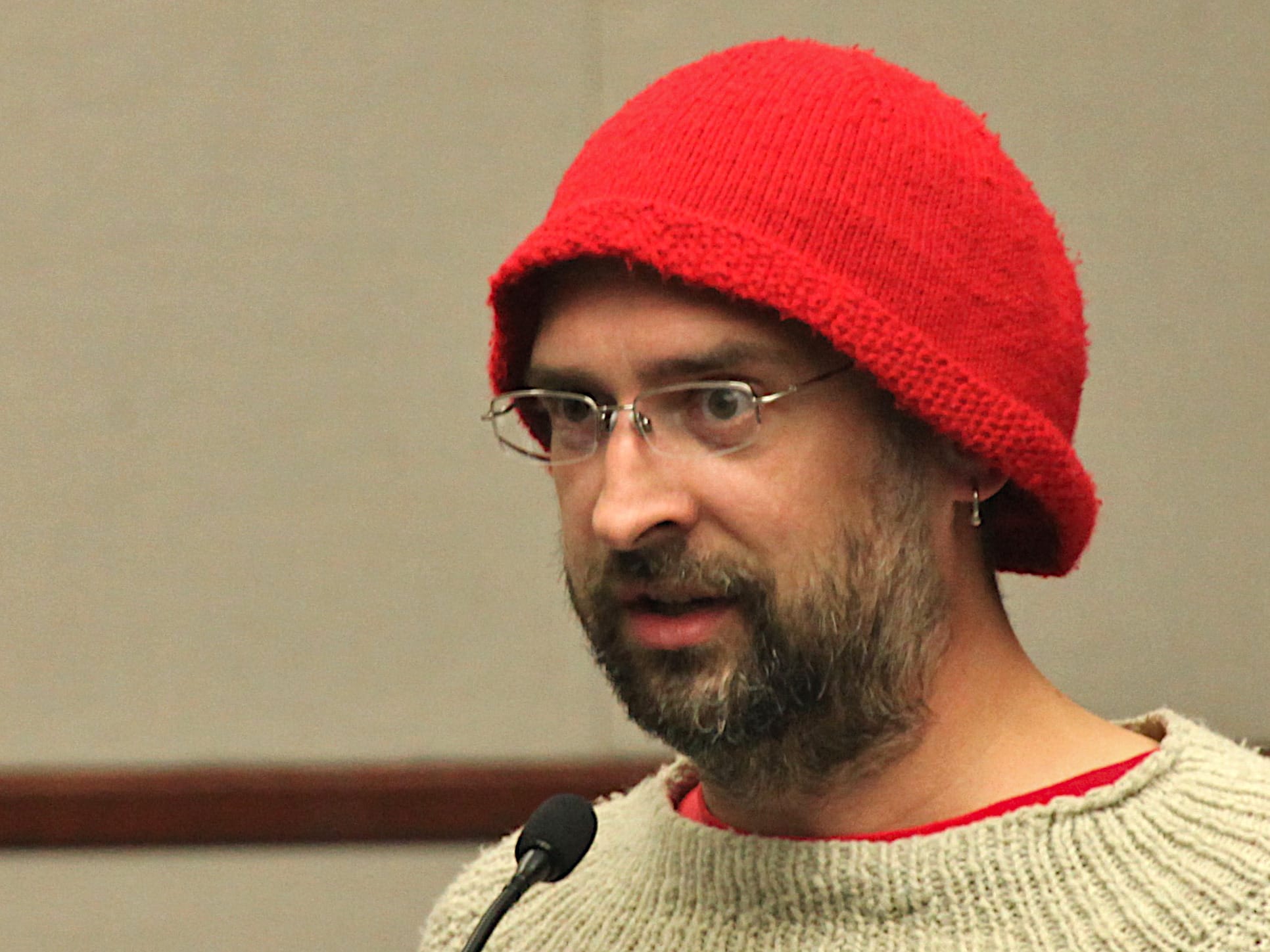Set for April 12: Possible city council vote on removal of Bloomington traffic commissioner because of social media posts



A possible vote on the removal of Greg Alexander from Bloomington’s traffic commission is now set for the city council’s April 12 meeting.
At Wednesday’s council meeting, Dave Rollo made a motion for Alexander’s removal, because of three posts on Twitter.com that Alexander made in November 2022.
The Tweets cited in Rollo’s motion read as follows:
“with all due respect, taking things away from elm heights *IS* exactly how the rest of the city gets help.”
“i would really like to know. it sounds like they are going to savagely penetrate your neighborhood and I want to know what they’re going to use to do that?”
“haters gonna hate and bloomington democrats gonna lick the shit out from between elm heights’ neighbors ass cheeks”
The Tweets came in the context of a council vote late last year to install a stop sign at Maxwell Lane and Sheridan Drive.
As a traffic commissioner, Alexander had opposed installation of the sign. The traffic commission as a group had recommended against the stop sign’s installation. Alexander sees the city council’s decision, which was contrary to the commission’s recommendation, as showing undue deference to the Elm Heights neighborhood.
The traffic commission is an advisory board that, among other things, recommends to the city council and other city officials ways to improve traffic conditions and the enforcement of traffic regulations.
On Wednesday, the council postponed Rollo’s motion until April 12, in order to allow at least five business days for Alexander to respond in writing.
Postponement passed unanimously, but the motion itself drew complaint from councilmember Steve Volan, who asked: “How many times are we going to do this? I mean, Mr. Rollo has redone his motion twice now.”
Volan’s comment reflected the protracted nature of the council’s wrangling over the question of Alexander’s removal. The two-and-a-half-months-long saga started at the council’s second meeting of the year, on Jan. 18.
At its Jan. 18 meeting, Bloomington’s city council reappointed Alexander to a two-year term on the city’s traffic commission.
The question of Alexander’s appointment was put in front of the council at the Jan. 18 meeting, along with a raft of other appointments.
Alexander’s reappointment was not supported by two councilmembers—Dave Rollo and Susan Sandberg—because they were aware of Alexander’s Tweets. Rollo voted no and Sandberg abstained on the whole slate of nominees.
At the council’s Feb. 1 meeting, Rollo made a motion to remove Alexander from the traffic commission. That motion was referred to the council committee on processes, which had been appointed at the council’s first meeting of the year by council president Sue Sgambelluri.
At the time, the committee’s work was not envisioned to include recommendations on procedures for removing members of boards and commissions.
The committee met three times in order to make recommendations about how to handle the situation. One of those recommendations was for Rollo to withdraw his Feb. 1 motion in favor of one that was more precise. The withdrawal of Rollo’s first motion took place a month later, at the council’s March 1 meeting.
At the March 1 meeting, Rollo made a new, more-detailed motion—which was supposed to receive a vote by the council at a future meeting, after Alexander had been given five days to respond in writing. But Rollo wound up withdrawing his March 1 motion on Alexander’s removal. It had become apparent during the March 1 meeting that when the time for a vote came, the motion was uncertain to pass.
This Wednesday’s motion from Rollo was even more detailed. In written form it took up two pages, and required more than five minutes to read aloud.
Rollo’s March 29 motion is different from his March 1 motion in a few different ways.
The March 1 motion gave as one of the causes for removal: “Sent unsolicited hand-written letters directly to members of the public who had appeared at Council meetings, which led to complaints and concerns from those members of the public.” The March 29 motion doesn’t mention the handwritten letters.
Rollo’s March 29 motion adds a Tweet that was not included in the March 1 motion. The additional Tweet reads: “with all due respect, taking things away from elm heights *IS* exactly how the rest of the city gets help.”
Rollo’s March 29 motion also adds a citation to the city’s employee manual, which was not included in the March 1 version. The relevant part of the manual, according to Rollo’s motion, says that employees can be fired for “any action that, whether or not a violation of a regularly established rule, regulation, or policy, is so deleterious to efficient City operations or to the public interest that discipline or discharge could reasonably expected to result.”
To apply the employee manual to members of boards and commissions would require a couple of logical steps. The manual applies to “volunteers.” If members of board and commissions are analyzed as volunteers for the city, then it would also apply to them.
Councilmember Matt Flaherty presided over the three meetings of the committee on council processes. On Wednesday Flaherty said that during the committee’s sessions, there was some discussion about making the city’s employee manual apply to members of boards and commissions—by adopting it as an ordinance or making it a part of a new board member’s orientation.
But during those committee meetings, there wasn’t legal advice given by the council’s staff that the employee personnel manual would apply to board and commission members, Flaherty said.
At Wednesday’s meeting, Flaherty asked council attorney Stephen Lucas about the idea of applying the manual to members of boards and commissions. Lucas responded, “To the extent that members on boards and commissions could be considered volunteers. I believe Mr. Rollo felt that that was relevant to the council’s consideration.”
Flaherty followed up: “You just said ‘to the extent that board and commission members could be considered volunteers’. Is it your legal opinion that they are considered volunteers?” Flaherty continued, “I mean, you don’t have to answer that now. But that’s my question.”
Flaherty added, “I’m trying to do what’s legally correct with respect to this, but I think there is significant risk in a number of the accusations that have been made, of running afoul of Mr. Alexander’s rights, including constitutional rights.”
At Wednesday’s meeting, public comment was solidly for removal of Alexander from the traffic commission. Weighing in from the public mic for Alexander’s removal were Natalia Galvan, Chuck Livingston, and Eric Ost.
At Wednesday’s meeting, Volan noted that during one of the meetings held by the council committee on processes, traffic commissioner Sarah Ryterband had weighed in supporting Alexander’s continued service on the commission.
Ryterband reiterated similar sentiments at the traffic commission’s first meeting of the year, which took place last week, on March 22.
At the traffic commission’s March 22 meeting, Ryterband said, “I just wanted to express my deep disappointment that a common council member would malign a member of the traffic commission, who is doing an exemplary job as a traffic commissioner.” She continued, “I want Mr. Alexander to know that he has my absolute support.”
Ryterband added, “I am disappointed in his use of social media to express his personal opinions—not as a member of the traffic commission but as a person.”
About social media in general, Ryterband said, “For those who choose to go to social media as a way of communicating one to another, if you’re going to wade into a cesspool, you can expect to be dirty, and to find a lot of filth.” She concluded, “So I would suggest that that’s not the best way to communicate with other humans.”




Comments ()